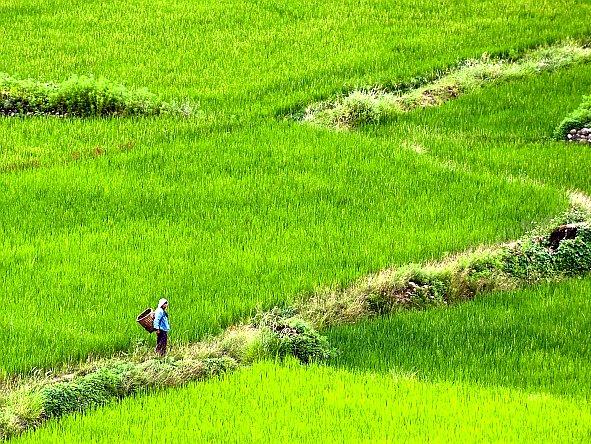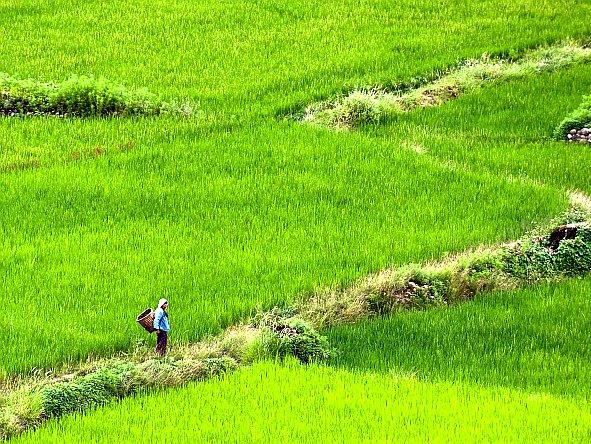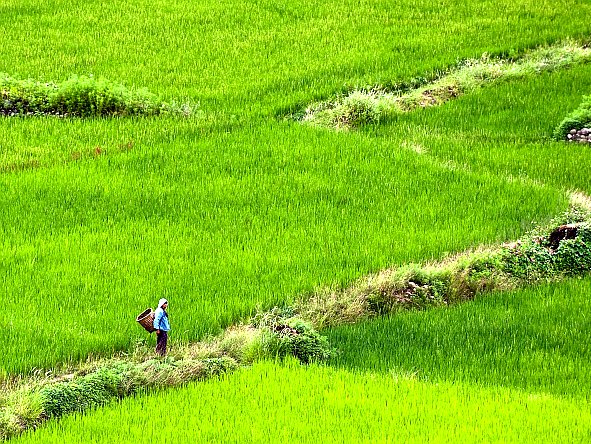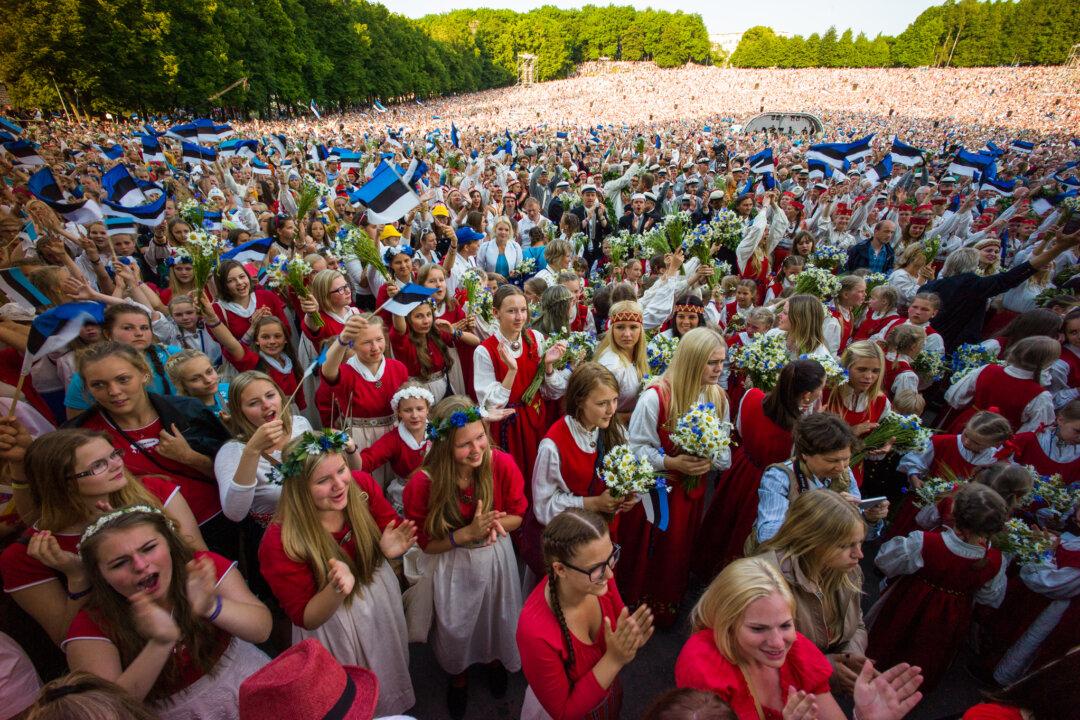Last week, Bhutan Minister of Agriculture and Forests Pema Gyamtsho, announced an ambitious plan to turn food production 100 percent organic by 2020. In a country where 79 percent of the population is involved in agriculture, along with the people’s high spiritual aspirations, going organic sounds like an easy task. But challenges are already in sight.
“It is inspiring and provokes conversation. It will be interesting to watch during the next year if they will be able to keep doing it—was it challenging, or was it an easy transition?” said Danielle Nierenberg of the Worldwatch Institute, director of the Nourishing the Planet Program, in an online interview.
In Bhutan, a small hereditary Himalayan kingdom situated between India and China, agriculture is basically a self-sustenance business. A study in 2006 found that more than 85 percent of the rice produced in the country is consumed at home. Active trading involves mostly apples, mandarin oranges, potatoes, and gingerroot.
Still, Bhutan’s red rice has set a profitable example. Many rice farmers in the high altitude areas produce red rice for export markets in the United States and Europe, where about 100 tons of milled rice is exported annually, according to the Ministry of Agriculture.
Nierenberg said that while the decision to go organic will mainly benefit the country’s own citizens, it can also serve as a good example for other regions and countries that do not have huge populations but do have a good amount of arable land.
“They can learn from Bhutan how to do it,” added Nierenberg.
The idea to go organic came first in 2002 as a part of a National Framework for Organic Farming in Bhutan, but the plan was formulated in 2008 by the Ministry of Agriculture. The policy aims at promoting organic farming as a way of life among Bhutanese farmers and at raising their standard of living.
Farming in Bhutan is already nearly organic, as almost no pesticides or fertilizers are used. Still, there are challenges such as insufficient awareness and understanding of organic production among farmers, lawmakers, and consumers.
In Bhutan, organic farming is often confused with traditional agriculture and is viewed as being backward, while modern farming is related to green technologies.
Another problem is the lack of a proper legal framework, standardization, and developed institutions to give support to organic producers.
Organic production is known for its labor intensiveness, and Bhutan lacks enough labor to cover such needs. According to a report from 2008, out of the total population of 634,982 people, only 49 percent are actively farming.
Eco-farming seems to be the only possible direction to follow not only for Bhutan but also for the whole world. With the rising prices of fossil fuels and evermore evident effects of climate change, the world will naturally have to move toward a more organic approach in order to cover food needs.
“Really, now is the time for governments all over the world to start investing in agro-ecological methods. Such investments will create resilience not just in Bhutan but all over the world. They will also help improve yields,” said Nierenberg.
Nierenberg warns that organic is not necessarily synonymous with sustainable, especially on a large scale, because agriculture has to consider not only how to reduce the use of chemicals but also how to contribute to biodiversity, rebuilding soils, protecting water supplies, and preventing air pollution.
“Organic doesn’t always mean better; sustainability is what we need to focus on,” said Nierenberg.
Bhutan seems to be on the right track. According to the Ministry of Agriculture’s policy, “In a country where the philosophy of ’middle path' prevails, most development policies are inclusive and not exploitive. Thus sustainability is stressed in all actions.”
The Epoch Times publishes in 35 countries and in 19 languages. Subscribe to our e-newsletter.







